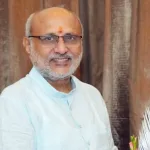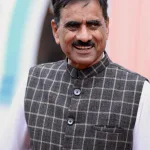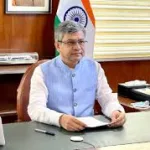Jammu, Apr 16: “Cardiovascular disease is a serious public health problem and this growing disease burden is driven by social macro factors such as urbanization and ageing,” said Dr Sushil Kumar, Head Department of Cardiology GMCH Jammu, on Sunday.
Interacting with the patients at a daylong cardiac awareness cum health check-up camp here, Dr Sushil Sharma stated that the changes in lifestyle and behaviour may affect cardiovascular disease risk factors including hypertension diabetes, dyslipidemia, obesity and physical activity.
The camp was organized by the department in collaboration with Dogra Brahmin Pratinidhi Sabha, Parade Jammu to screen high-risk cardiac patients and to disseminate the information regarding primary prevention of cardiovascular diseases by adopting a healthy and cardiac-friendly lifestyle. More than 250 people were screened, evaluated and diagnosed. Free medicines were given as per the requirements.
On the occasion, Dr Sushil said, “Previous studies confirmed that urbanization is a double-edged sword for health. It offers health benefits including access to services and education, higher incomes and living conditions. However, it also poses risks, such as pollution, transition to Western-style diets and sedentary lifestyles. Changes in CVD risk are easily influenced by social determinants, such as socioeconomic status (SES) and residential environments.”
In different stages of urbanization, the cardiovascular disease risks level could be distinct since risk response capacity varies among urbanized residents with different SES, he said, adding, “If, on the one hand, the exposure to CVD risk factors is more intense in urbanized areas, on the other hand, it ensures greater access to health services. Thus, greater contact with cities enables the early diagnosis of diseases. These differences between urban and rural areas also reflect the access to health services by the populations.”
In the case of indigenous populations, this problem is in part mitigated by the existence of a specific subsystem for basic health care, he said. “Tackling these issues requires a multi-stakeholder approach: by working together we can improve health education, strengthen healthcare and fight industry tactics, to address the world’s number one killer, Dr Sushil said.
Others who were part of the camp included Dr S K Bali ( Nephrologist), Dr Kewal Sharma, Dr Imran and Dr Barkat. Paramedics and volunteers included Raghav Rajput, Rajkumar, Rajinder Singh, Mukesh Kumar, Gourav Sharma, Akshay Kumar, Jatin Bhasin, Pankaj Kerni, Jamshed Ali, Vikas Kumar, Sandeep Pal, Hridanshu Kohli, Arjun Ghuman, Vinay Kumar and Ashish Talwar.





